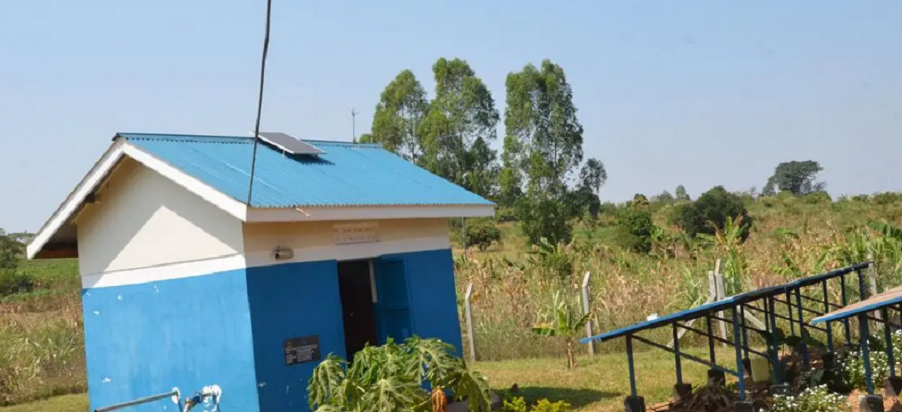Uganda requires an annual vaccine stock of 88 million doses for the bi-annual vaccination requirement
The Minister of Agriculture, Animal Industry and Fisheries, Frank Tumwebaze, has said that the government plans to eradicate Foot and Mouth Disease and not just control it.
Foot and Mouth Disease (FMD) is a highly contagious viral disease that affects all cloven-hoofed (two hoofed) animals including cattle, goats, sheep, pigs and wild animals such as buffaloes, deers and antelopes.
The disease spreads very fast through close contact between infected and non-infected animals. The disease is transmitted through aerosols (fluid droplets) breathed out by infected animals and contact with affected surfaces. The aerosols can be transported by wind to far areas. The affected animals get wounds in the mouth, feet, and teats in female animals.
Currently, there are 36 districts affected by FMD and under quarantine.
While responding to the issues around FMD raised in a recent sitting of Parliament, Tumwebaze said that this causes significant economic losses to the farmers and to the country due to disruption in animal production, productivity and in trade of animal and animal products.
“Scientists and economists have estimated the economic cost of FMD to a farmer per unit livestock to be USD 20 per infection. The cost can be higher with repeated infections. Our target, therefore, as Government Rt. Hon. Speaker and Hon. Colleagues are to not only control the disease but eradicate it,” said Tumwebaze.
According to Tumwebaze, the ideal situation that enables any livestock producing country to fully control and eradicate FMD, requires undertaking a bi-annual compulsory vaccination exercise of the entire susceptible animal herd in the Country, test and slaughter’ followed by safe disposal of the carcasses, and quarantine.
Policy on FMD is that the government avails vaccines to farmers as a Public good.
However, Tumwebaze says that the budget item for procuring vaccines, remain insufficient and therefore what is provided covers only 1.1% of the susceptible domestic animal population contrary to the recommended at-least 80% coverage, leaving the rest of the herd vulnerable.
“This explains why the Country experiences repeated outbreaks,” said Tumwebaze.
“Our total susceptible animal herd that requires FMD vaccination as per current estimates is 44 million (cattle, sheep, goats and pigs). This, therefore, requires an annual vaccine stock of 88 million doses for the bi-annual vaccination requirement at a cost of USD 2 per dose. The financial implication for this translates into USD 176M (UShs671bn).”
He, however, explains that the government has been studying this financial implication and notes the financial stress it would impose on the national budget if the requirement for the bi-annual mass vaccination is to be achieved. Accordingly, a Cabinet Paper is scheduled for discussion on Monday, February 5, 2024 to consider a number of policy options including cost-sharing since the cost per dose is affordable by most livestock farmers.
In the meantime, he said MAAIF repurposed some of its development budget and managed to avail 2.56M doses to the Country through the DVOs of ninety four (94) districts last year.
Under the same arrangement, MAAIF has ordered for 2.3M doses expected in a few months to come.
“Rt. Hon. Speaker and Colleagues, another challenge associated with procuring FMD vaccines is that they cannot be bought off-shelf since they are biologicals with a short shelf life. You order and they manufacture for you. This explains the delay in their supply chain,” explained Tumwebaze.
In the circumstances, Tumwebaze says it becomes inevitable for the Commissioner Animal Health who is the Commander of the animal disease control chain in the Country to order/impose animal movement restrictions (quarantine) in affected districts.
“Quarantines are unpopular and an inconvenience to people’s livelihoods but yet again inevitable as temporary measures to control further spread to alarming and uncontrollable epidemic levels. If the stakeholders can be disciplined and comply with the quarantine protocols, the disease will resolve/be contained in a very short time as we also wait for the vaccines,” he added.
Tumwebaze says that the government is working with neighboring Tanzania to collaborate in the fight against FMD since it is a transboundary disease.
“The collaboration focuses on areas of synchronization of vaccination calendars as well as coordination between our veterinary authorities in the clearance of animal movement and disease surveillance across the border,” he said.
Tumwebaze appealed to the district veterinary authorities to ensure strict disease surveillance, timely reporting and ensure transparency and accountability in the administration of the government provided vaccines.
He further appealed to fellow Political leaders especially the District Local Governments to respect and support the Disease control chain of command with veterinary scientists in the lead.





